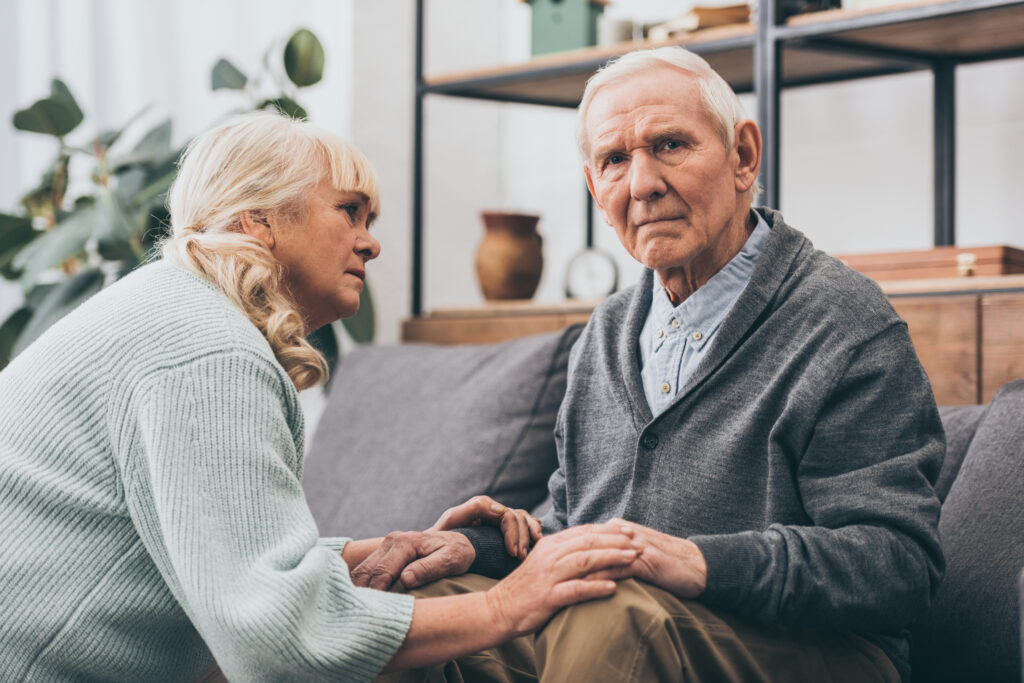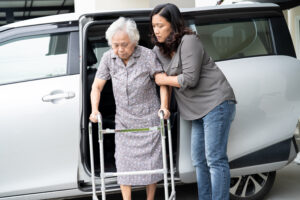Recognizing and understanding dementia and its early symptoms can make a significant difference in managing the condition effectively. Navigating the complexities of dementia can be a challenging experience for caregivers and family members. This blog post aims to provide you with essential information on dementia, enriched with personal stories and expert advice, to help you care for your loved ones.

What Is Dementia?
Dementia is a collective term used to describe various symptoms of cognitive decline, such as memory loss and difficulty communicating. It’s not a specific disease but rather a syndrome that affects a person’s ability to think, remember, and reason.
Dementia: Understanding Key Signs and Symptoms–
Memory Loss
One of the most common signs of dementia is memory loss, especially forgetting recently learned information. This can manifest through:
- Frequently forgetting names or appointments
- Repeating the same questions multiple times
- Increasing reliance on memory aids
Disorientation
Individuals with dementia often lose track of time and place. They may:
- Forget where they are or how they got there
- Struggle to recognize familiar environments
- Experience confusion about the date, time, or season
Difficulty Communicating
Language and communication skills can deteriorate, making it hard for individuals to express themselves. Symptoms may include:
- Struggling to find the right words or calling things by the wrong name
- Having difficulty following conversations
- Repeating sentences.

Personal Stories
My First Experience with Alzheimer’s
My first encounter with Alzheimer’s came through my grandpa. I was a new nurse and brought him home from the nursing home for Easter. Everything was fine until it was time to take him back. He refused to get in the car, accusing me of trying to kidnap him and calling me a spy. Remembering my nurse’s training, I avoided forcing the issue. We sat back inside the house where he felt safe, and 30 minutes later, he willingly got into the car. It took a bit longer than expected, but the experience was far less stressful for both of us.
My first experience with Alzheimer’s came with my grandpa. I was a new nurse and picked up my grandpa at the nursing home to bring him home for Easter. Everything was great until it came time to take him back. He wouldn’t get in the car with me and said I was trying to kidnap him and I was a spy. I learned in my nurse’s training that it is best not try to coax or force the issue, so we went back in the house. He felt safe again and 30 minutes later he got right in the car with me, and I took him back. It took us a bit longer than expected to get him back to the nursing home, but it was with a lot less drama and stress on my grandpa.
Past Clients Mr. and Mrs. D
I can’t talk about Alzheimer’s without mentioning Mr. and Mrs. D. Mrs. D rapidly went through the stages of Alzheimer’s, experiencing severe symptoms. I recall a midnight call from an overnight caregiver who was being hit with a cane. Upon arriving, I quickly calmed Mrs. D by ensuring her safety and reading the Bible to her, which always brought her comfort. She soon felt at ease and went to bed peacefully. It’s crucial to remember that their fears are very real to them.
I usually can’t talk about Alzheimer’s Disease without mentioning our past clients Mr and Mrs D. Mrs. D went through the stages of Alzheimer’s Disease very quickly and experienced the extreme of all the symptoms. I will never forget getting a call at midnight from an overnight caregiver yelling “ouch ouch” repeatedly as she was being hit with a cane. I went over to the house, and it didn’t take but a minute to calm her down, but it appeared the caregiver was not adequate in her skills of managing a client with dementia. I told her she was safe I wouldn’t let anyone hurt her. She was of a strong faith and reading the Bible always brought her comfort, so we read for about 5 minutes, and she said she was ready to go to bed. We have to remember their fears are very real to them. How would you treat someone if they were in a very scary scenario? In their minds they are.

Expert Advice for Caregivers
Caring for someone with dementia requires patience, understanding, and specialized strategies. Here are some expert tips:
- Create a Safe and Familiar Environment: Reduce anxiety and disorientation by maintaining a consistent setting.
- Establish a Routine: A structured routine can provide a sense of security and predictability.
- Use Clear, Simple Language: When communicating, opt for straightforward language and allow extra time for responses.
- Be Patient and Understanding: Remember, the person with dementia isn’t being deliberately difficult.
- Encourage Physical and Mental Stimulation: Activities that stimulate the mind and body can help maintain cognitive function.
- Seek Support for Yourself: Being a caregiver is demanding. Join support groups or opt for respite care to avoid burnout.
Understanding Dementia: Conclusion
Understanding the signs and symptoms of dementia is the first step in providing effective care. By recognizing these early indicators and employing compassionate caregiving strategies, you can significantly improve the quality of life for your loved one.
If you found this post helpful, please share it with others who may benefit. Together, we can create a supportive community for those affected by dementia.
Feel free to reach out to Your Nurse Advocate Consulting for more personalized advice and support.
Resources:
Caregiver Self-Awareness Free Checklist-learn about how you are doing in three different caregiving areas and where you may need some help.
Blueprint for Building a Care Team on a Budget: We understand the immense responsibility and emotional weight that comes with caring for aging loved ones. Our 30-day online boot camp is specifically designed to guide adult children, primary caregivers, and family caregivers through the process of creating a supportive and effective care team.
What is the Blueprint for Building a Care Team on a Budget-Video
Your Nurse Advocate Consulting Free Resources
Dementia Care Solutions Video: The Changing Relationships when Dementia is Involved
Tina Baxter, GNP-BC “The 3 Ds; Dementia, Delirium and Depression in Older Adults
The National Institute on Aging: https://www.nia.nih.gov/2021-2022-alzheimers-disease-related-dementias-scientific-advances/dementia-care-and-caregiver
https://www.nia.nih.gov/health/alzheimers-and-dementia/what-alzheimers-disease






